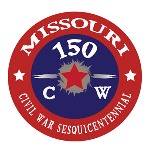May 2, 2015 at Lincoln University in Jefferson City, 8 a.m.-3 p.m.This lecture series will feature speakers discussing the Civil War with particular focus on how the efforts to create national unity and civil rights unfolded in its wake.
All are welcome to attend the lecture series.
- $20 registration fee
- $10 student registration fee
The cost of registration includes:
- Keynote address
- Lectures
- Luncheon with address from Dr. Kevin D. Rome, Lincoln University President
- Panel discussion
The agenda includes:
Keynote speaker, Dr. Linda Reed, The Civil War: A Rehearsal for the Civil Rights MovementThe Civil War opened up the way for the successful consideration of the Reconstruction Amendments--13th, 14th, and 15th, amendments to the U. S. Constitution. Many historians describe the 20th century struggle for freedom as the Second Reconstruction. In the context of "Reunion and Reconciliation Day" it is fitting to tie together two time periods that provided much room for forward-looking progress.
General Donald Scott, The Prophetic PresidentAs president, Abraham Lincoln set the tone and terms to end the Civil War and begin a new birth of freedom for the country without knowing how or when the war would end and did it before his untimely death.
Christopher Phillips, North Star, Southern Cross: The Cultural Politics of Civil War Memory in Missouri, 1865-1915Our understandings of the national past and present interpret a timeless border between North and South, with the Civil War as confirmation that distinct cultures on either sides of the Ohio River fought over separate devotions to slavery or freedom. Missouri straddled both a north-south and an east-west border during this war. This talk will explain how modern Missourians alongside neighboring Iowans, Illinoisans, Kansans, and Kentuckians derived such understandings as much from the aftermath of the conflict as from the war experience itself. Situated as former westerners, among white residents the cultural politics of war memory in these states' took them in different trajectories by the politics of regional identity, evolving as Northerners, Southerners, and more complicatedly Midwesterners, by re-narrating the war, and themselves.
Panel discussion, The Civil War in Missouri: Consequences and Meanings for Modern-day MissouriansLed by Gary Kremer, Executive Director of The State Historical Society of Missouri
|
Sponsored by: Missouri State Parks, the National Park Service, City of Jefferson, Lincoln University, Missouri State Archives, State Historical Society of Missouri and Missouri's Civil War Round Tables.
|

